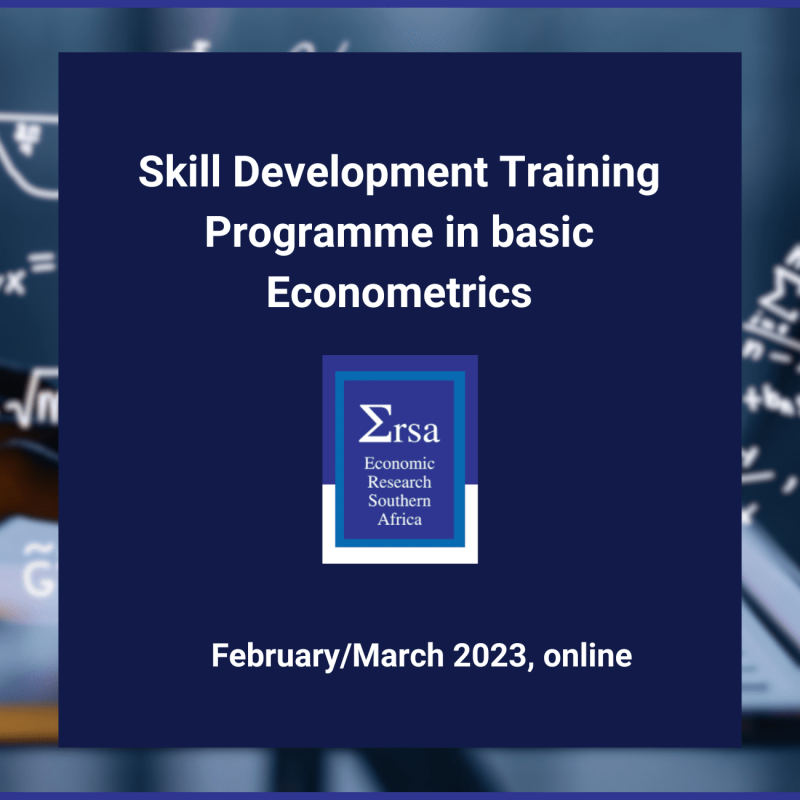Cohorts 9 and 10
Time-series Techniques Assumed prior knowledge: The following rough outline assumes that participants are comfortable with basic statistical methods, such as the calculation of means and standard deviations, as well as hypothesis testing, primarily t, z, and F distribution based tests. A modest understanding of matrix algebra (meaning that the participant can interpret the solution to the OLS problem) is advised. EViews software will be used in practical demonstration, but no prior knowledge of EViews is required.
Topics:
- Research Orientation and the Econometric Approach to Analysis (1 day)
- Research Orientation
- The Nature of the Econometric Approach
- Purposes of Econometrics
- Example in EViews: Model Specification, Estimation, Evaluation and Interpretation
- Introduction to the Simple Linear Regression Model
- OLS Estimator, Properties
- The Classical Normal Linear Regression model (CNLRM)
- Goodness of Fit
- Hypothesis Testing
- Practical Exercise in E-Views
- Time Series Econometrics (Part 1) (1½ days)
- Underlying Data Generating Process and Concepts of Stationarity & Non-stationarity
- Unit Root Tests (ADF, PP, DG-GLS, Ng-Peron, KPSS)
- Concept of Cointegration
- Residual Based Test for Cointegration (Engle-Granger Cointegration Test)
- Error Correction Model (ECM) specification
- Diagnostic Checking
- Model Simulation and Model Response Characteristics
- Practical Examples and Hands-on Exercises in EViews
- Time Series Econometrics (Part 2) (1½ days)
- Vector Autoregressive (VAR) Model
- Impulse Response and Variance Decomposition Analysis
- Multivariate Cointegration Technique (Johansen Maximum Likelihood Method)
- Block Causality and Exogeneity Test
- Weak Exogeneity Tests and Model Identification
- Practical Example and Hands-on Exercise in EViews
- Volatility Models (½ day – Introduction and demonstration only)
- Properties and Theoretical and Empirical Issues
- ARCH Processes
- ARCH and GARCH Modes
- Estimation and Prediction
- Interpretation and Evaluation of Results
- Principal Component Analysis (½ day – Introduction and demonstration only)
- Relevant Research Questions (with examples)
- Data Requirements
- Application in EViews
ERSA is pleased to invite applications for the Skill Development Training Programme in basic Econometrics for academics and postgraduate students (masters and PhD) with limited training in Econometrics and quantitative methods. The training is designed to provide basic econometrics training on a level that would be accessible to a person with a limited background in econometrics. In time, this will contribute to the ability of these academics to publish in journals with an interest in applied economic modelling, supervise postgraduate students with an interest in applied econometric research and as such an increase in research capacity in South Africa. The training will run over three years and take place during one or two weeks of intensive training each year. The first year focuses on time-series econometrics; the second year on cross-sectional techniques and the third year on panel data techniques. The Cohort will learn about the theoretical background as well as gain experience with the empirical application using software like EViews, R and Stata.
To learn more about the program and how to apply, please click on the document link below.



